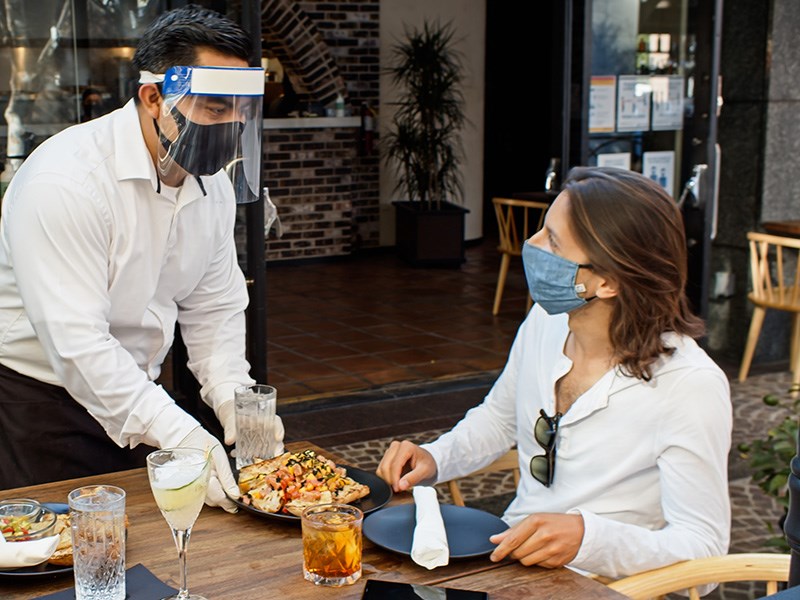Tourism and hospitality business owners are reeling from the devastation to their sector caused by the COVID-19 pandemic. With leisure and business travel drastically reduced, government restrictions crimping capacity and a general reticence to eat in restaurants, many businesses have been forced to close while others are in survival mode.
The pain spans the sector: restaurants, hotels, destinations, convention venues, aviation-related businesses and other ventures.
Pre-pandemic, BC’s restaurant industry was the province’s third-largest private-sector employer, generating $15 billion annually, or five per cent of the province’s gross domestic product, according to Restaurants Canada.
Ian Tostenson, CEO of the BC Restaurant and Foodservices Association, estimated that about 20 per cent of the province’s restaurants have closed as a result of the pandemic and could rise to more than 30 per cent by the time restrictions ease.
BC restaurant owners are limited to a maximum of 50 per cent capacity. But they can at least offer dine-in service. All other provinces west of the Maritimes, except Saskatchewan, have banned dine-in service.
Restaurant owners’ hopes that New Year’s Eve could be a small win were dashed when provincial health officer Bonnie Henry issued a new health order on December 30 that required all restaurants to stop serving alcohol at 8 pm on December 31, two hours earlier than the previously set time.
Most restaurant owners abided by the new order, and Tostenson said customers cancelled between 25 and 40 per cent of reservations for meals starting at 8 pm or later.
“There are restaurant groups that lost hundreds of thousands of dollars on that night because they closed,” he said. “Even small restaurants took a big hit because they lost the ability to do a second sitting.”
BC Hotel Association president and CEO said her $3.2 billion industry, which pre-pandemic employed approximately 60,000 people to oversee 80,000 hotel rooms, has been ravaged, with occupancy of less than 30 per cent at the end of 2020.
“That is a 60 per cent drop from 2019,” she said. “We have 46 percent of properties reporting that if they don’t receive access to government-supported financing, they will not stay in business – and the timeline for that is between now and the end of March.”
One misconception people have of the hotel sector is that large businesses dominate, said Jarrett. The reality is that small and medium-sized businesses partner with large hotel companies to use established brands.
“About 82 per cent of all [hotel] properties in BC are small and medium-sized, independently owned and operated businesses,” said Jarrett. “They are barely hanging on.”
Rebound not expected until regular travel resumes
Further crimping hotel occupancy is a new stigma against travelling. Politicians in at least four provinces faced public wrath for travelling abroad during the holiday season. An end to that stigma is one thing that the travel sector needs in order to return to any semblance of normalcy.
Vancouver Airport Authority (VAA) CEO Tamara Vrooman pinned passenger volume at Vancouver International Airport (YVR) in mid-December at 14.6 per cent of what it was a year earlier.
“The vast majority of those are domestic flights, while there are virtually none, although some for essential reasons, that are trans-border-US,” she said. “Cargo is down but certainly not anywhere close to as much [as passenger travel].”
VAA laid off 25 per cent of its 550 employees in May, but Vrooman said a small number of those workers have been brought back. Significant cuts were also made by private companies that combine to employ around 26,000 people at YVR, although Vrooman said some of those workers have been rehired recently.
Expansion projects at YVR, including new parking facilities, remain on hold.
The plunge in travel has been a nightmare for destinations.
Industry insiders created a tourism task force that released a report filled with recommendations for a path forward in early December.
It is clear that BC’s entire tourism-hospitality sector is on life support.



